salmon
Green Highlander x 7
Green Highlander is one of those patterns that I keep tying, it’s the one that caught my attention when I started out, and I have tied it in different versions the last couple of years (mostly hairwings/polarbear). This winter I have a project to tie up a box of classics for fishing and started gathering material this autumn when the season was over. The final piece that landed in my mailbox was florican and swan, so I set out to tie up 10 GH to get a feel for the pattern.
I tied up 3 first, then sat down to do the 7 other in stages; learning a pattern for me means breaking it down into sections: tail & butt, then body with hackle & throat and finally the wing. This way I can focus on one part at the time and repeat it within short timespan to become familiar with that part of the fly.
Here I have completed the body and started laying out the parts to start marrying the wing.
Married wing done, then the sides:
and finally setting the wing, sides, topping and horns:
With this process I also wanted to try out how different tails made for slightly different expressions (short tail vs. long tail) and how floss body vs. dubbed front-part worked out in the final fly. This is a good exercise if you want to get familiar with a pattern and how it turns out with small differences.
This set was tied on Mustad 80500 #1/0, so the next part will be to tie up on #2/0 and #1 to vary in size when the season starts up again.
Bombers
Balmoral
- Hook: Daiichi 2271 #1 – http://flyhooks.org/daiichi/2271
- Tag: UNI-French Twist Medium
- Tail: Topping & Tippet
- Butt: Black ostrich herl
- Body: Green & Blue seals fur
- Ribs: UNI-Mylar #10, Veevus French tinsel medium – counter-wrapped over hackle
- Hackle: Black heron from middle of blue
- Throat: Widgeon
- Wings: Turkey
- Cheeks: JC, drooping
http://flytyer.org/eide/pattern/balmoral
Tying up a part of my salmon box with Dee patterns these days, today: Balmoral
Durham Ranger – First fly tied in hand
Last winter I got myself a copy of the “Tied in the Hand” book by Sven-Olov Hård and set myself a goal of tying a classic without a vice before the year was over. I got myself some Pearsall’s gossamer silk, tied up some Durham Rangers and other classics, but never got to actually sit down and do it. Yesterday I had a couple of hours with nothing much to do and decided to (at least) get started.
I have read the book, but didn’t sit down to really study it, but thought that enough of it was still remembered to get started! I got one of my biggest hooks; a #5/0 Mustad, picked out the material needed for a Durham Ranger and sat down in the living room with no vice in front of me, and just a cardboard box to keep the clippings.
Why would I do this? I think exploring new patterns and new material is a great way of exploring flytying, and going back to the original way of tying these patterns is a way of learning about the history and how everything connects. I chose a pattern I have tied a lot of lately to keep the distraction of the pattern itself down to a minimum, the approach after that was more or less: Let’s get at it and see how it turns out!
One thing I learned, that I didn’t expect, was the connection you get with the material when tying in hand: you feel the GP, the dubbing, the JC. I learned a lot about setting the wing that I haven’t discovered when tying with a vice and I learned really well that I need some good wax… You can see the GP&JC doesn’t sit perfectly aligned: without a good wax the stem moved and I ended up with some bad alignments, I also ended up with a really big head, but I’ll attach that next time.
I’ll re-read the book, get some vax and more material and sit down during the winter and tie up some more.
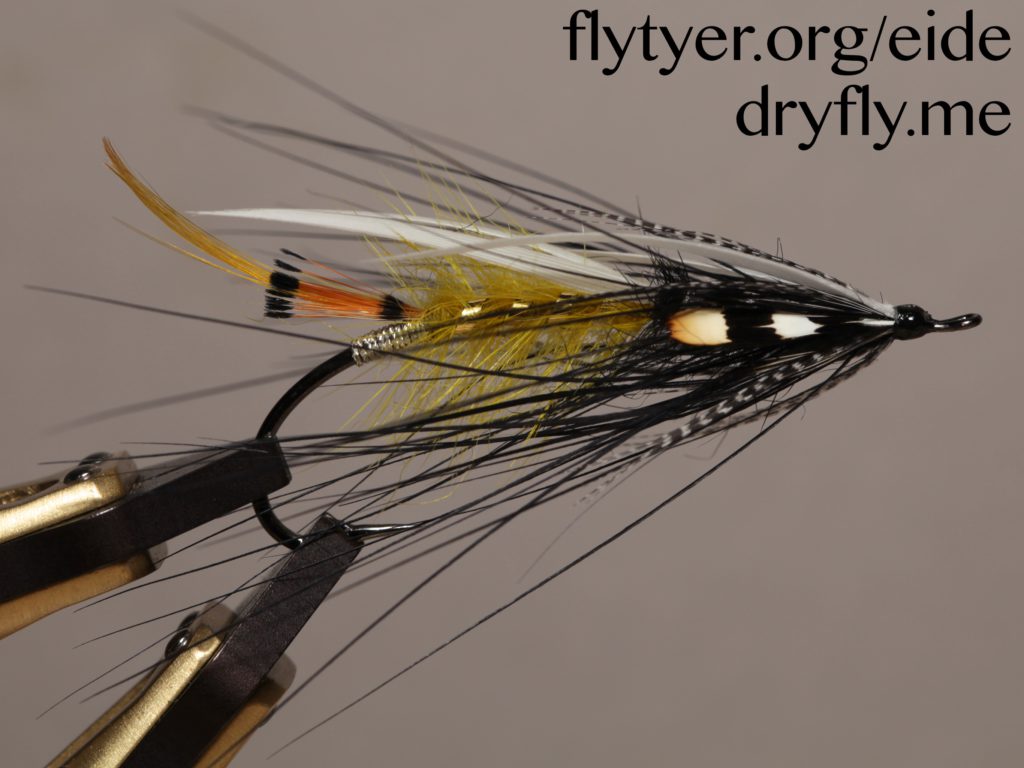
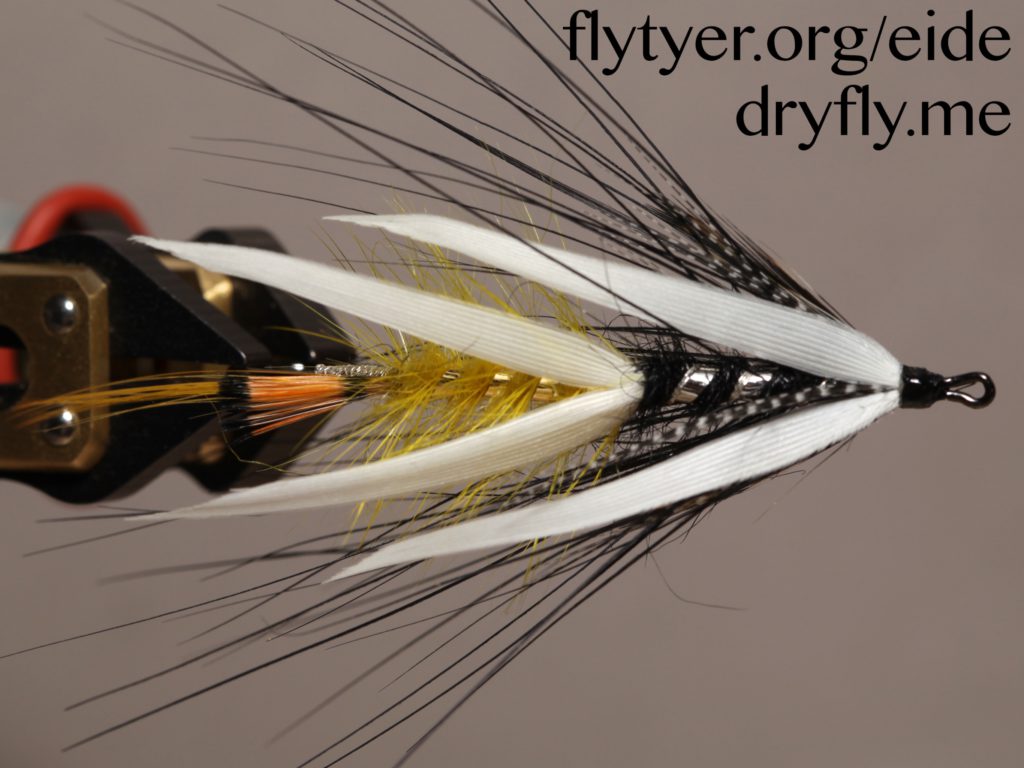
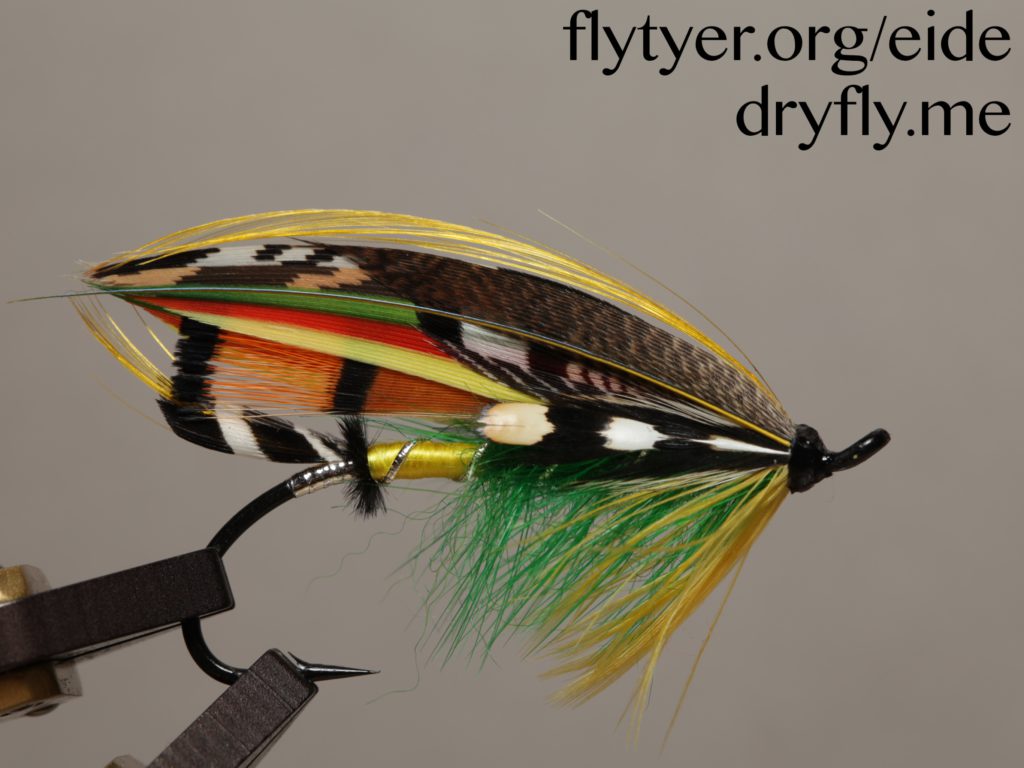
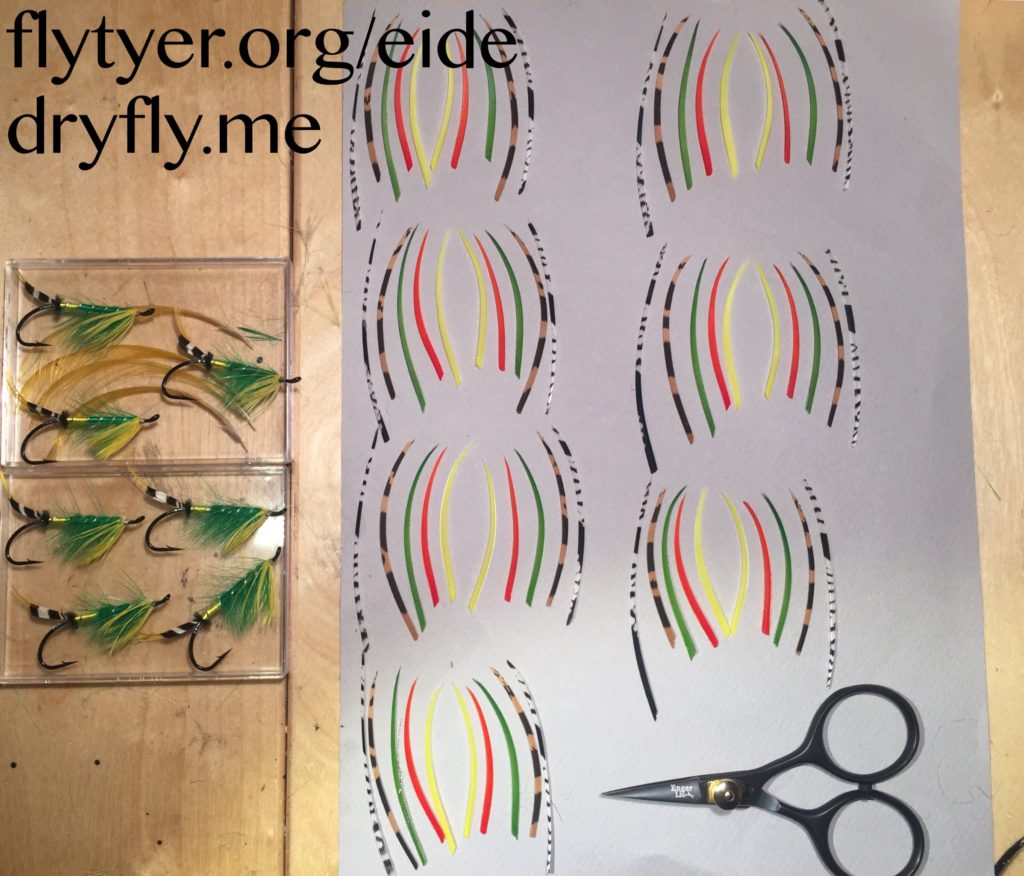
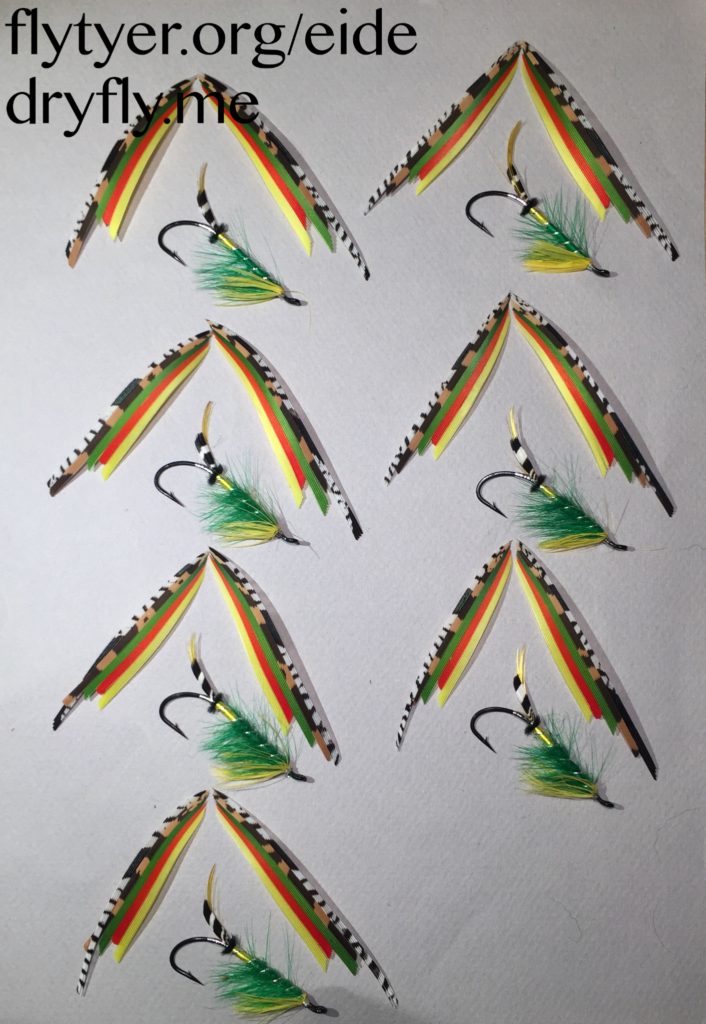
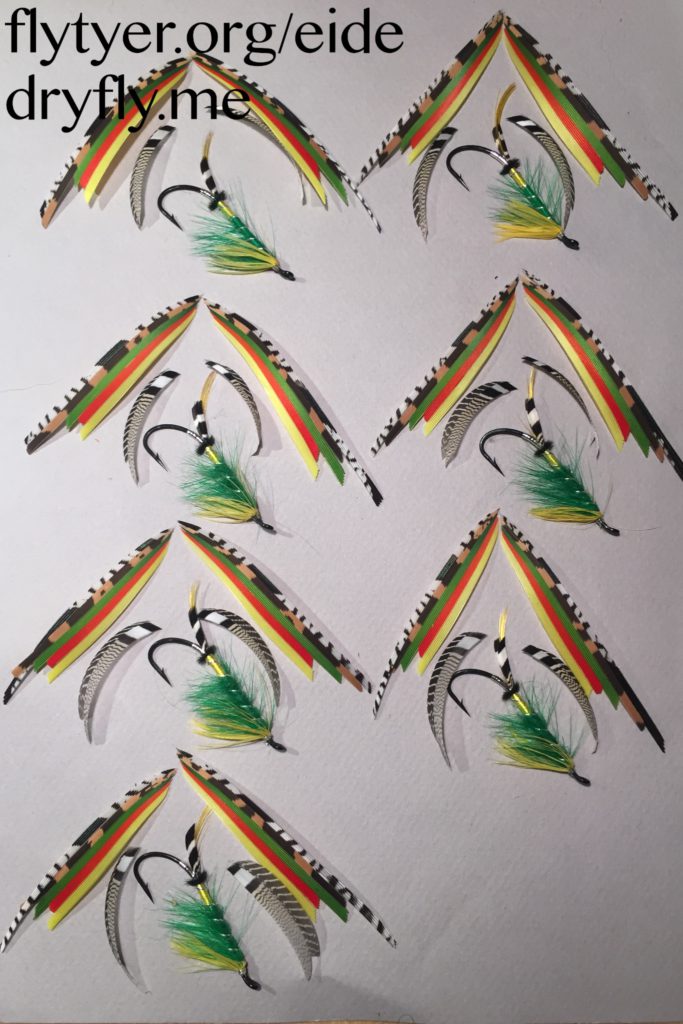
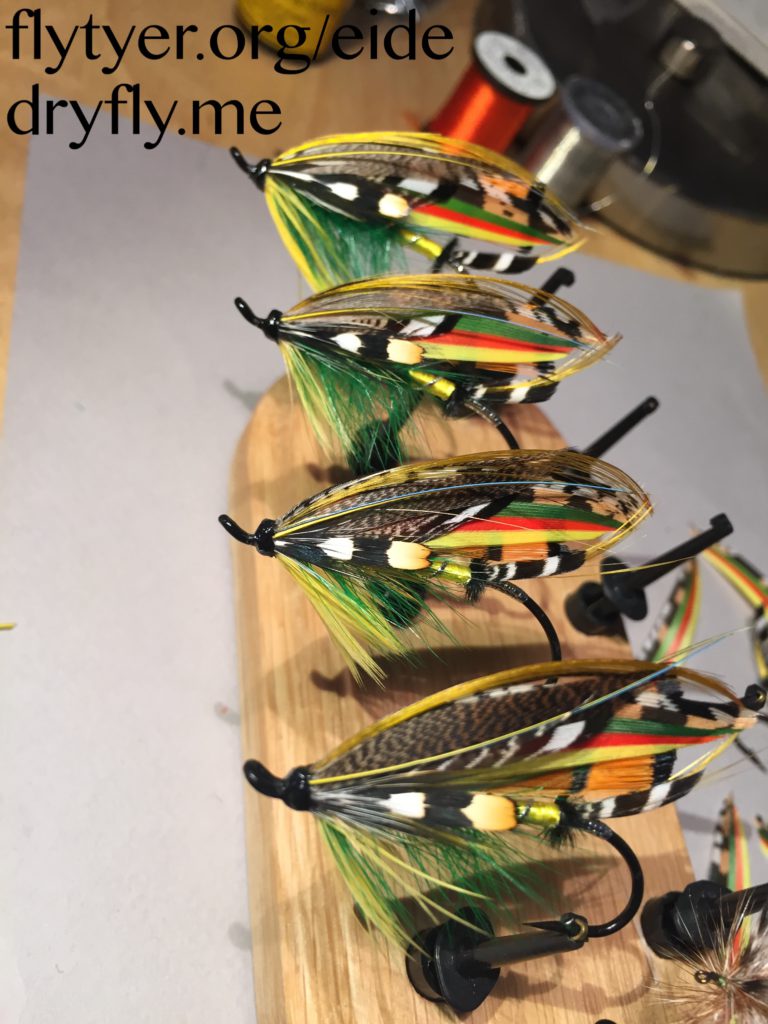
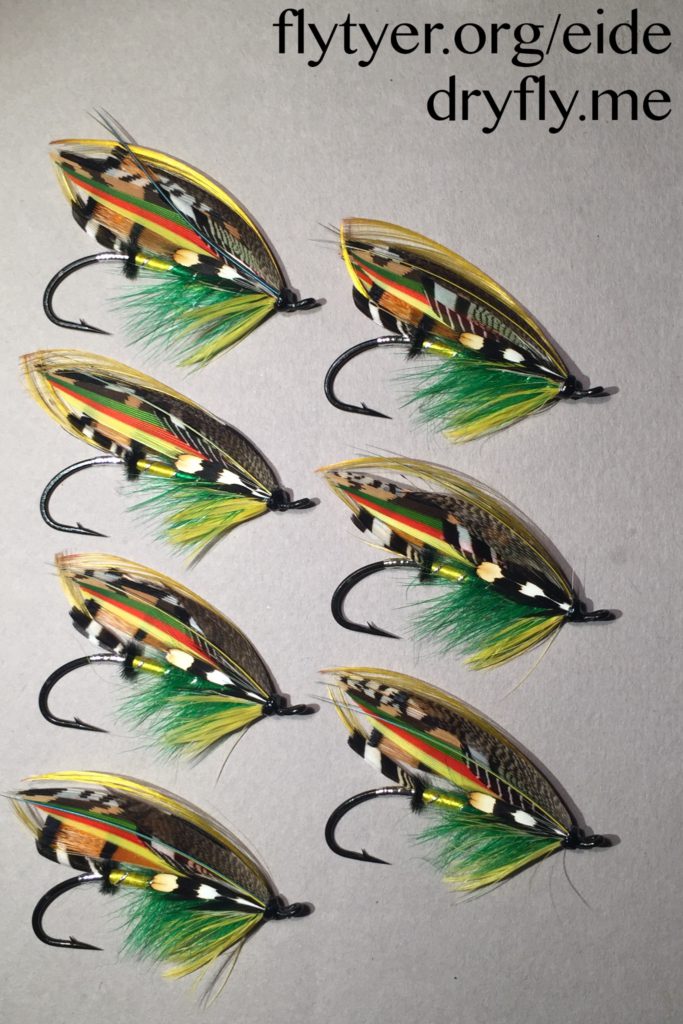
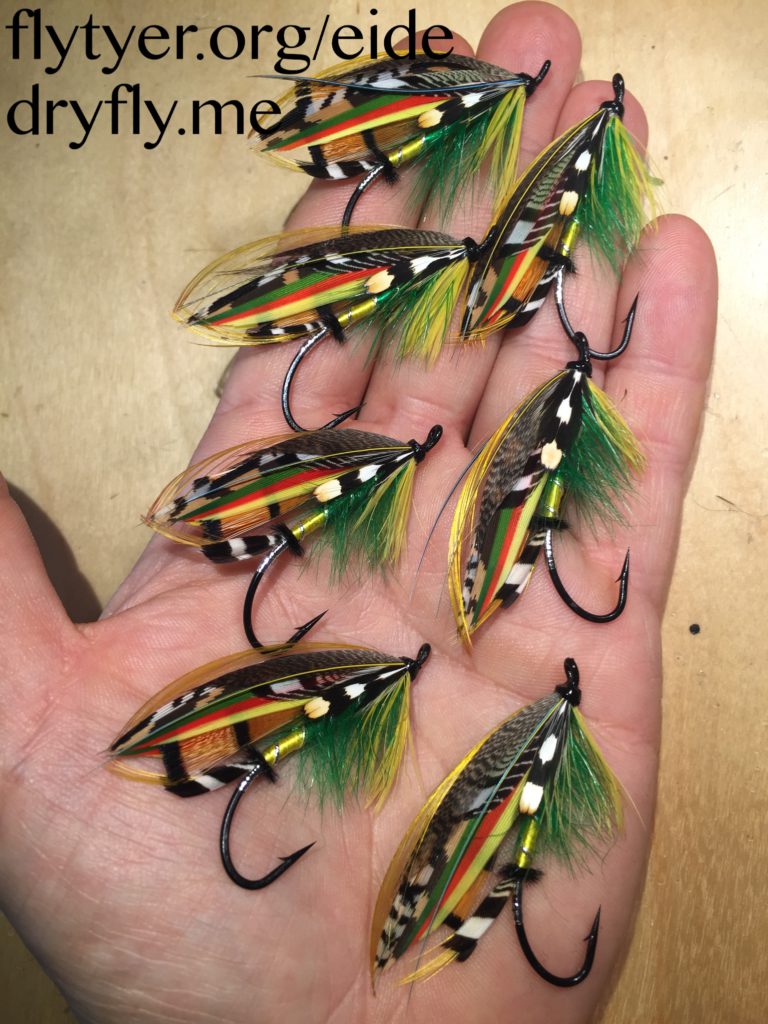
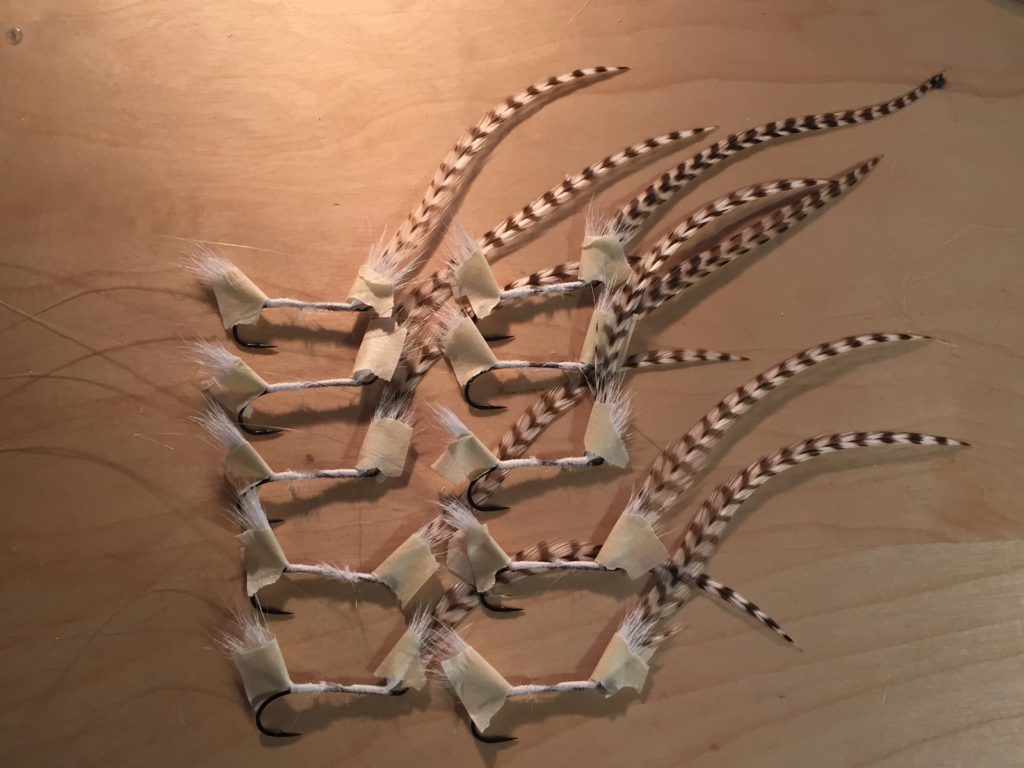
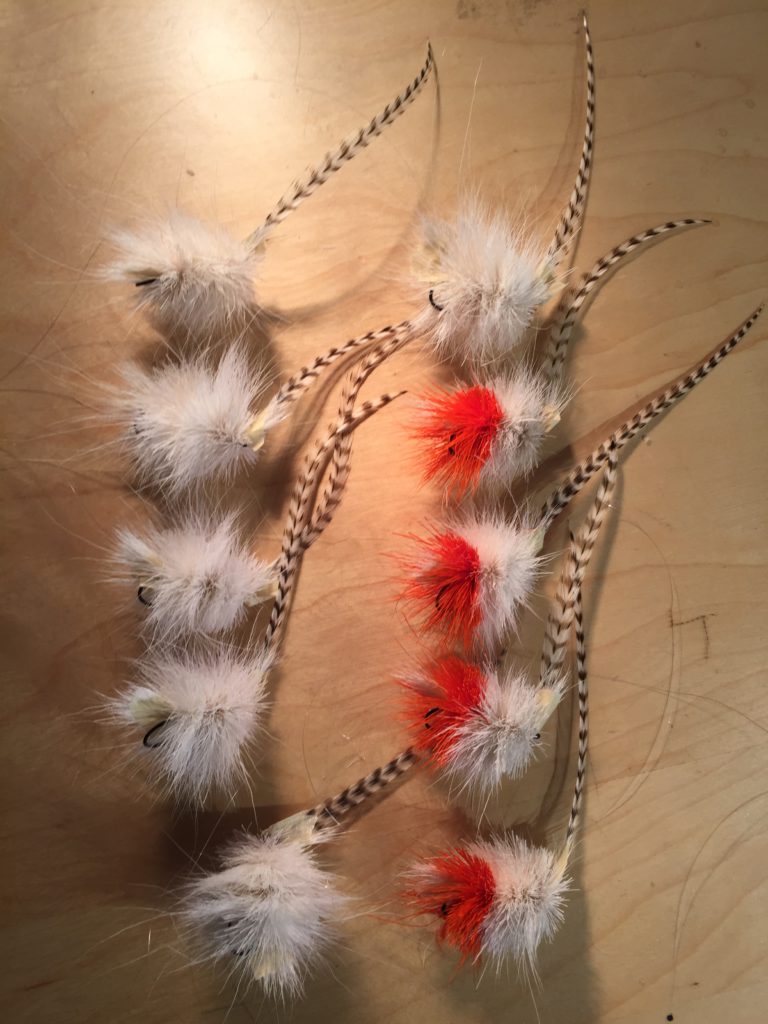
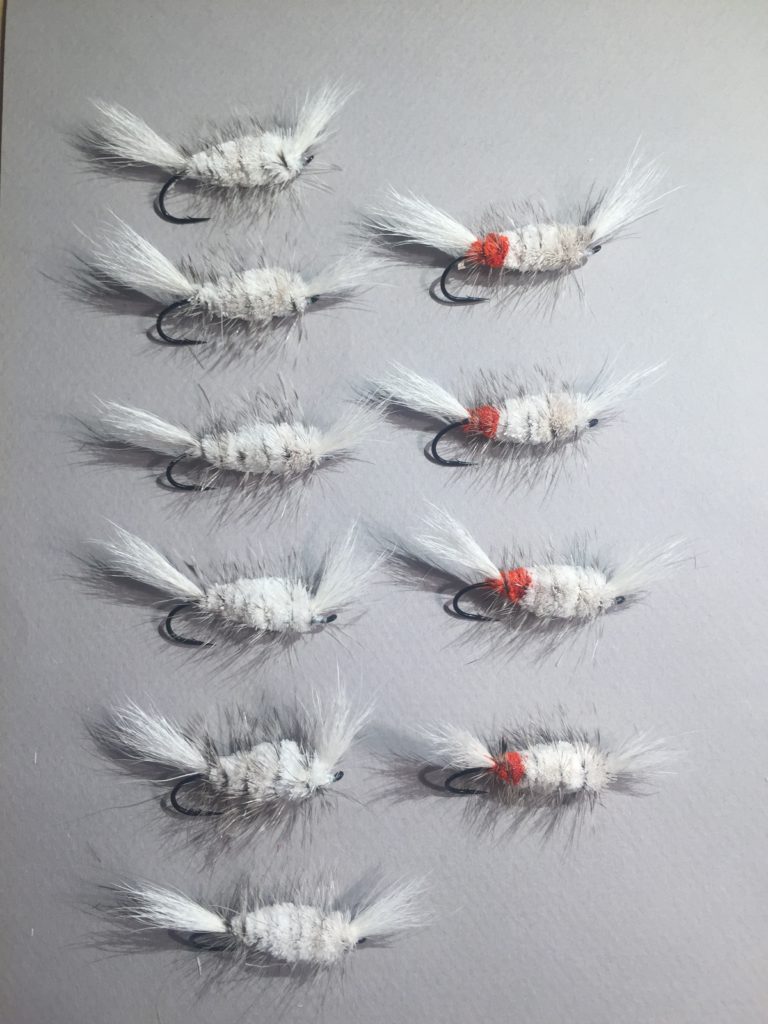
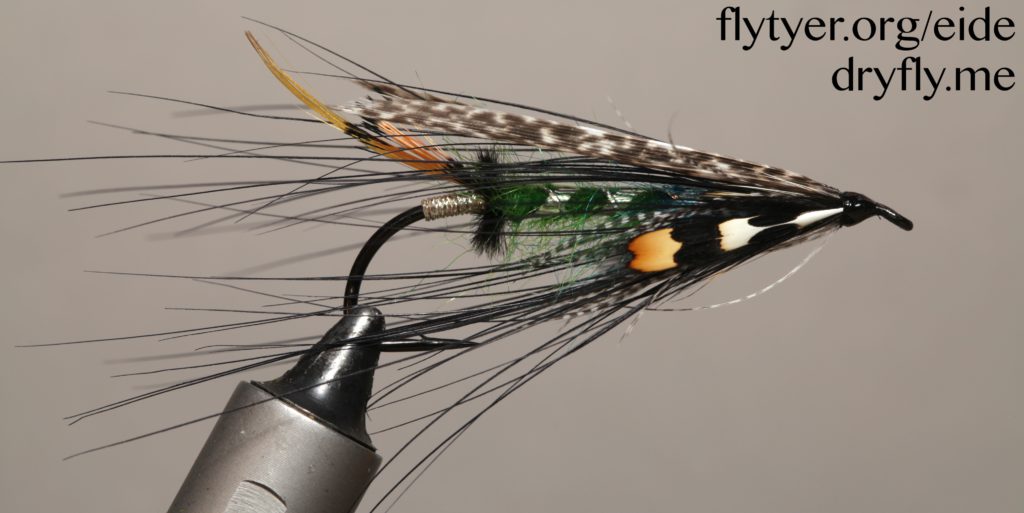
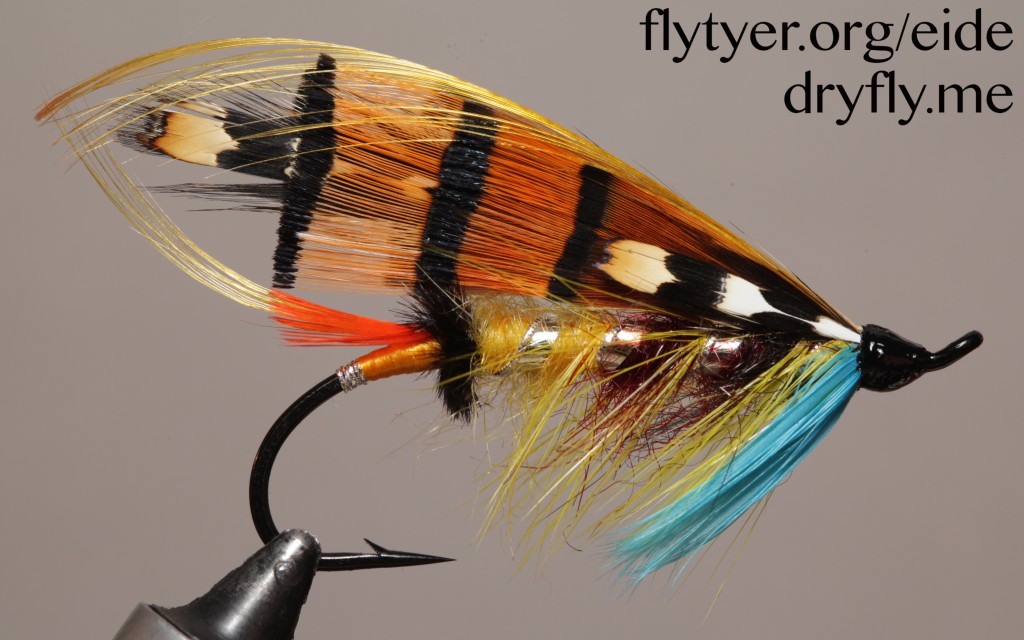
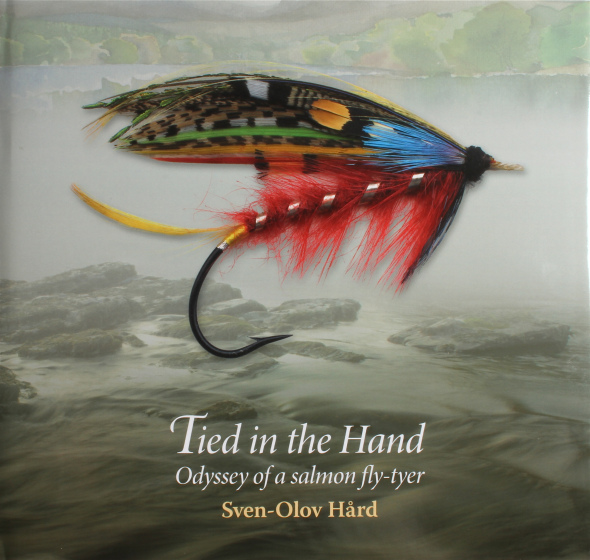
Recent Comments